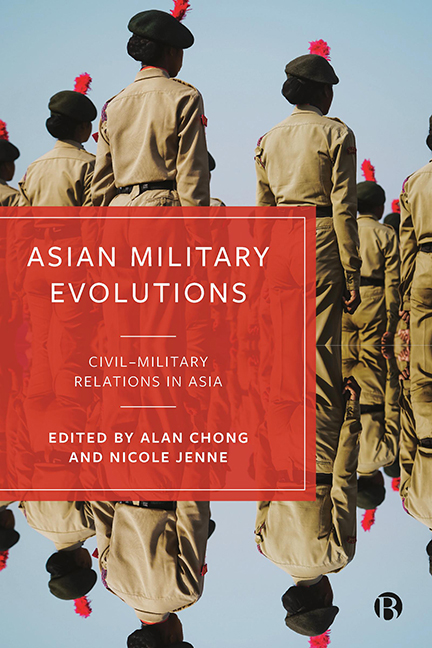Book contents
6 - The Role of the Malaysian Armed Forces in Defence Diplomacy: A Foreign Policy Outworking of Civil–Military Relations in Malaysia
Published online by Cambridge University Press: 18 January 2024
Summary
In contrast to most countries in the Asia-Pacific in which threats and occurrences of military coups are not uncommon, Malaysia’s civil–military relations have remained non-turbulent and uneventful, such that scholarly studies on this topic have gained little traction. Moreover, due to its partially democratic and soft-authoritarian political system, Malaysia has been a peculiar case where the civilian government has been able to exert considerable control over the military over a long period in a manner resembling civil–military relations in Western democracies (Liew, 2019; Matsuura, 2002, pp 1–2).
A handful of studies on Malaysia’s civil–military relations have sought to account for the stability in the Malaysian Armed Forces’ (MAF) subordination to the former Barisan Nasional (BN) government. Some scholars opine that the MAF’s lack of involvement in political affairs can be explained by both constitutional restraints which prevent the military from participating in politics, and the MAF’s adherence to the democratic principle of a civilian-military divide and professionalism inherited from British colonialism (Ahmad, 1985, pp 127–29; Jeshurun, 1989, p 92; Jeshurun, 1994, pp 200–3; Matsuura, 2002, p 5). As Bellamy and Beeson (2008) have highlighted, the MAF has been playing only a secondary role in the BN’s political survival, whereas the police have performed a far more politicized function in preserving the BN regime (pp 88–9). Other scholars argue that given the military’s strong professionalism and subordination to civilian authority, the military would most likely engage in a coup or political intervention only if there were to be major political upheavals in the country (Nathan and Govindasamy, 2001, p 274). Overall, then, these studies reflect what Feaver describes as the tendency of civil–military relations studies to focus on the occurrence or non-occurrence of coups (Feaver, 2003, pp 10–11). As Bellamy and Beeson (2008) have noted, the relatively constant and stable civil–military relations in Malaysia could hardly warrant a fresh study of this topic (pp 88–9).
- Type
- Chapter
- Information
- Asian Military EvolutionsCivil-Military Relations in Asia, pp. 110 - 128Publisher: Bristol University PressPrint publication year: 2023



